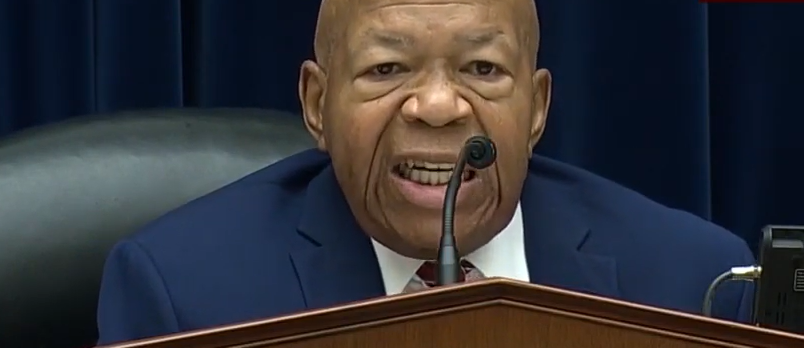Columnist Gloria J. Browne-Marshall
[LAW OF THE LAND]
“They betrayed everything we worked for,” says Jocelyn Cooper, 84, her delicate voice firm with rage. With yet another Black politician indicted for corruption, she, like so many others, wonders if the community will ever realize its full political potential.
Mrs. Cooper remembers when she and her husband, Andy Cooper, took out a third mortgage on their home to finance a lawsuit challenging the voting districts in Brooklyn. It was Cooper v. Power that led to Brooklyn’s first African-American in the House of Representatives, Shirley Chisholm. Chisholm, also the first African-American female in Congress, would go on to run for President. The district she represented was created as a result of Cooper v. Power.
However, the legacy of Black political gains is tarnished by images of revered Black politicians admitting to abuse of power, bribery, and extortion. Jessie Jackson, Jr. (D-IL) pled guilty to a felony charge of using $750,000 in campaign funds for extravagant purchases, including a stuffed animal head. Jackson, son of civil rights activist, Jesse Jackson, Sr, may serve 46 to 57 months in Federal prison.
All communities have experienced corrupt politicians. However, the Black community with its special vulnerabilities can least afford such scandals among its politicians. For example, Tom DeLay (R-TX), White, and former Majority Whip, was convicted in 2011 of laundering political contributions and sentenced to three years in prison. Perhaps politicians in other communities may not be as dependent on a single elected official for political representation.
The Civil Rights Movement served as a springboard for Black political careers. Moving from protest to politics, Sharpe James, an educator, was Mayor of Newark, NJ, from 1986 to 2006. Then, James was brought down by fraud convictions and sentenced to 27 months in Federal prison. Charles Diggs (D-MI), a civil rights activist who worked to end apartheid in South Africa, was the first Chair of the Congressional Black Caucus. He was censured by Congress. Diggs, convicted of mail fraud in 1980, served 14 months in Federal prison. He died maintaining his innocence of all charges.
Black politicians have long claimed a double-standard convicts them for conduct others do freely. In 1967, when Reverend Adam Clayton Powell, Jr. (D-NY), was stripped of his power and Congressional seat for allegedly abusing campaign funds he said: “I will always do just what every other Congressman and committee chairman has done and is doing.” Powell was censured, the most severe sanction Congress can administer short of expulsion.
Powell, a Harlem legend, filed a lawsuit to regain his seat against House Speaker John McCormack. The case, Powell v. McCormack went to the U.S. Supreme Court. Powell was victorious. However, the damage was done. A young Charlie Rangel defeated Adam Clayton Powell, Jr. for that Harlem seat.
Charles Rangel (D-NY), now 82, is suing John Boehner, Speaker of the House, to overturn a 2010 censure for tax improprieties. Rangel chaired the powerful House Ways and Means Committee. He lost that post when the House voted 333 to 79 to censure him. Rangel claims his constitutional rights were violated.
However, corruption charges against certain Black politicians are a matter of greed, not discrimination. Former Representative William Jefferson (D-LA), a Harvard Law School graduate, stashed $90,000 in bribe money in his freezer. Jefferson was convicted of taking bribes from businesses wanting to invest in Africa. Jack B. Johnson, Prince George’s County Executive, charged with taking over $1 million in bribes, and his wife, a County Councilperson, were both sentenced to Federal prison. Leslie Johnson tried to hide $80,000 in her blouse when the FBI arrived to search their house.
When Kwame Kilpatrick was elected Mayor of Detroit, at age 31, his youth was a sign of hope and rejuvenation. Now, as Detroit’s unemployment rises to 18 percent and population falls by 25 percent, Kilpatrick, 42, is going to prison. In March, Kilpatrick was convicted on 24 counts, including racketeering conspiracy and extortion. That same month, bankrupt Detroit was taken over by Michigan Governor Rick Snyder who then appointed a manager.
Communities of all sizes are reeling from political corruption scandals. In Milwaukee, Michael McGee, Jr., former Milwaukee Alderman, was imprisoned for corruption. In Georgia, Fidelis Ogbu, 60, DeKalb County Department of Public Works engineering supervisor was sentenced to 3 years in Federal prison for extortion. Brooklyn’s Clarence Norman lost leadership of the Brooklyn Democratic Party, the biggest Democratic organization east of Chicago, when he was convicted of extortion. Norman was stripped of an Assembly seat he held for 23 years.
When Jocelyn Cooper, a retired social worker, remembers voting drives, stuffing envelopes, going door to door, she sighs deeply. “We sacrificed so much for future generations to have more than we did,” says Cooper. She wonders if some Black politicians truly understand the struggle that created the opportunity for them to run. “They betrayed the trust.”
Hope lies with those politicians who never forget they are public servants.
______________________
Gloria J. Browne-Marshall, an Associate Professor of Constitutional Law at John Jay College in New York City, is author of “Race, Law, and American Society: 1607 to Present” and a legal correspondent covering major trials and the U.S. Supreme Court. Twitter: @GBrowneMarshall






